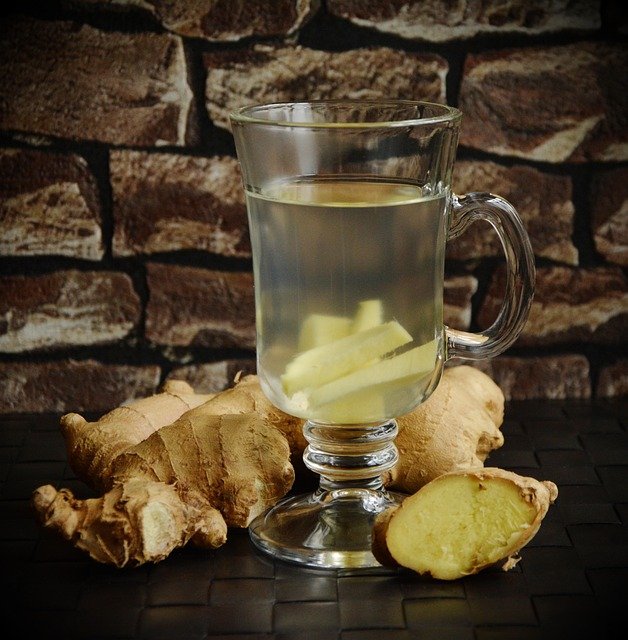Natural Drinks for IBS: Gentle Bowel Relief Solutions
Support digestion naturally with drinks designed for bowel relief. Options like warm lemon water, prune juice, herbal teas, and fiber-rich smoothies may help regulate bowel movements and ease occasional constipation. Always consult a doctor if issues persist.

What Drinks Provide Effective Bowel Relief?
Several beverages have demonstrated potential benefits for digestive health and bowel regularity. Warm lemon water serves as an excellent morning starter, combining hydration with natural citric acid that may stimulate digestive enzymes. The warmth helps relax intestinal muscles while the lemon provides vitamin C and natural detoxification properties.
Prune juice remains one of the most well-researched options for bowel relief. Rich in sorbitol, a natural sugar alcohol, prune juice can help soften stool and promote regular bowel movements. Start with small amounts, typically 4-6 ounces daily, as excessive consumption may cause cramping or loose stools.
Herbal teas offer gentle relief without harsh side effects. Peppermint tea contains menthol compounds that may relax intestinal smooth muscle, while chamomile tea provides anti-inflammatory properties that can soothe digestive irritation. Ginger tea supports overall digestive function and may help reduce bloating and discomfort.
How Do Drinks for Bowel Relief Support Digestive Health?
Therapeutic beverages work through multiple mechanisms to promote digestive wellness. Adequate hydration remains fundamental for proper bowel function, as dehydration can lead to harder stools and constipation. Many beneficial drinks also contain natural compounds that stimulate peristalsis, the wave-like muscle contractions that move food through the digestive tract.
Fiber-rich smoothies combine multiple beneficial ingredients in one convenient beverage. Blending fruits like pears, apples, and berries with leafy greens provides both soluble and insoluble fiber. Adding chia seeds or ground flaxseed increases the fiber content while providing omega-3 fatty acids that support anti-inflammatory processes.
Fermented beverages like kefir and kombucha introduce beneficial probiotics that may help restore healthy gut bacteria balance. These live microorganisms can improve overall digestive function and may help reduce IBS symptoms in some individuals. However, those with severe IBS should introduce fermented drinks gradually to assess tolerance.
Which Drinks Help with Bowel Movement Regularity?
Different beverages target various aspects of bowel health through distinct mechanisms. Magnesium-rich drinks, such as water enhanced with magnesium supplements, can help draw water into the intestines and soften stool. Aloe vera juice contains natural compounds called anthraquinones that may stimulate bowel movements, though quality and purity vary significantly between products.
Green tea provides antioxidants while offering mild caffeine content that can stimulate digestive activity. Unlike coffee, which may cause cramping in sensitive individuals, green tea typically provides gentler stimulation while delivering beneficial polyphenols that support overall health.
Coconut water offers natural electrolytes and may help maintain proper fluid balance in the digestive system. Its natural sweetness comes from easily digestible sugars that don’t typically cause digestive upset, making it suitable for those with sensitive stomachs.
Homemade vegetable juices, particularly those containing cucumber, celery, and leafy greens, provide hydration along with natural enzymes that support digestion. These low-sugar options won’t cause blood sugar spikes while delivering essential nutrients for digestive health.
Professional IBS Treatment Options and Costs
While natural drinks can provide supportive relief, comprehensive IBS management often requires professional guidance. Treatment costs vary significantly depending on the approach and provider type.
| Treatment Type | Provider | Average Cost Range |
|---|---|---|
| Initial Consultation | Gastroenterologist | $300-$500 |
| Dietitian Consultation | Registered Dietitian | $150-$250 |
| Functional Medicine | Naturopathic Doctor | $200-$400 |
| Follow-up Visits | Various Specialists | $100-$300 |
Prices, rates, or cost estimates mentioned in this article are based on the latest available information but may change over time. Independent research is advised before making financial decisions.
Many insurance plans cover gastroenterology consultations and basic diagnostic tests, though coverage for alternative approaches like functional medicine may be limited. Some practitioners offer package deals or sliding scale fees for comprehensive IBS management programs.
Creating an Effective Beverage Routine for IBS
Implementing therapeutic drinks into daily routines requires careful planning and gradual introduction. Start with one new beverage at a time to identify individual responses and tolerance levels. Keep a symptom diary to track which drinks provide the most benefit and note any adverse reactions.
Timing matters significantly when using drinks for bowel relief. Consuming warm beverages upon waking can stimulate morning bowel movements, while herbal teas between meals may help reduce bloating and discomfort. Avoid drinking large quantities with meals, as this can dilute digestive enzymes and potentially worsen symptoms.
Quality considerations are crucial when selecting therapeutic beverages. Choose organic options when possible to minimize exposure to pesticides and additives that may trigger IBS symptoms. Read labels carefully and avoid products containing artificial sweeteners, which can cause digestive upset in sensitive individuals.
Conclusion
Natural drinks offer valuable support for IBS management and bowel relief when used as part of a comprehensive approach to digestive health. While beverages like warm lemon water, prune juice, and herbal teas can provide gentle relief, individual responses vary significantly. The key lies in gradual introduction, careful monitoring of symptoms, and finding the right combination that works for each person’s unique digestive needs. Professional guidance remains important for developing effective long-term IBS management strategies that may incorporate both natural remedies and conventional treatments.
This article is for informational purposes only and should not be considered medical advice. Please consult a qualified healthcare professional for personalized guidance and treatment.




